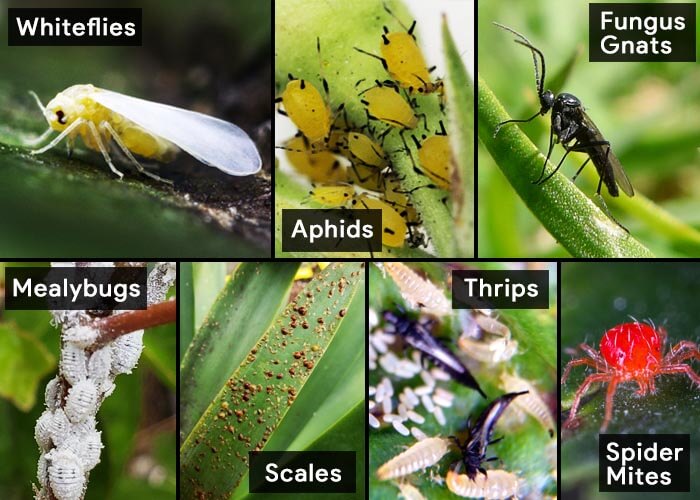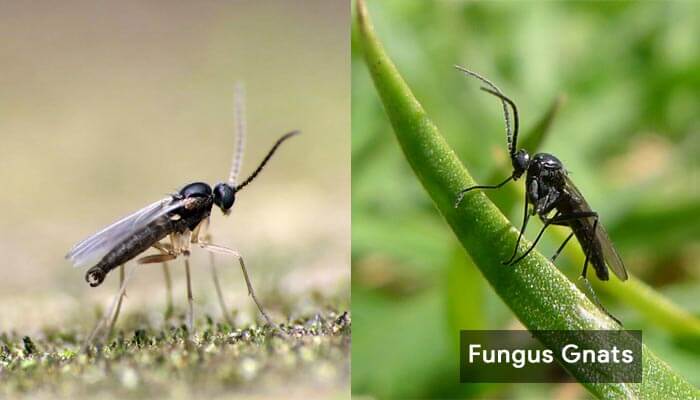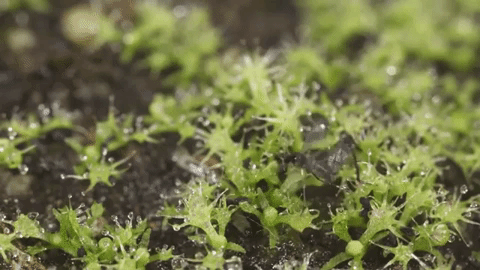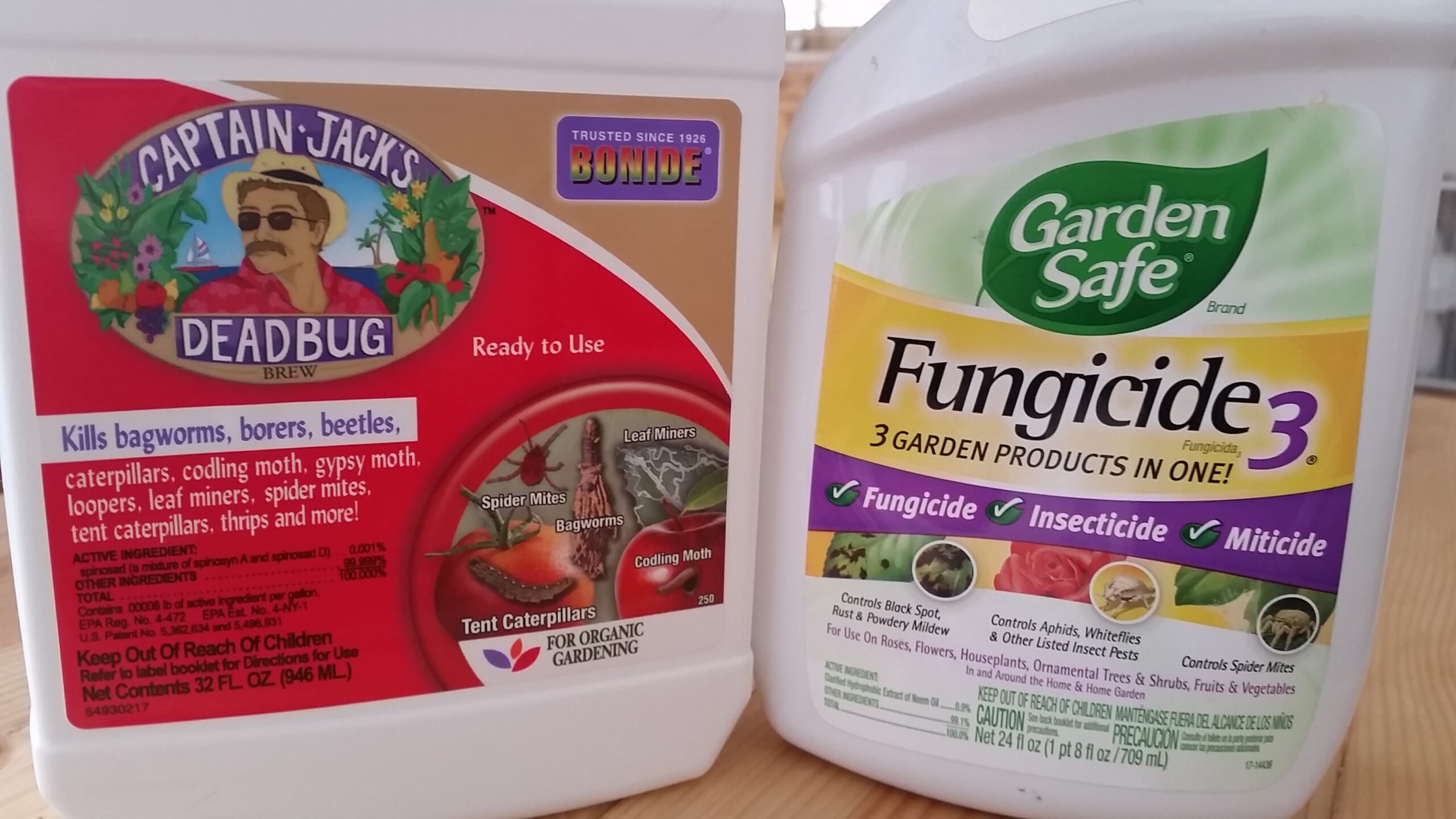Insecticide For Houseplants Gnats
Getting tired of being bugged by the bug? Sorry, I just couldn’t resist using that line! If you are thinking of how to get rid of bugs in houseplants soil you are at the right place. I wrote this article specifically to help you identify what type of bugs have attacked your houseplants and how to get rid of them effectively.
It’s true that indoor container gardening is one of the most popular hobbies nowadays among urbanites. With not enough space for outdoor gardens, you have to make most out of your space to enjoy vibrant blooms & better air quality. But along with the enthusiasm and excitement also comes a serious challenge – Bugs!
From whiteflies to fungus gnats, aphids, thrips, and what-have-you, these minuscule creepy living things are collectively called “bugs” for a reason- they can bug you to no end causing distress not just to the plant itself but also to your sanity.
Let’s get right to it, if you already know what type bugs have attacked you, click on the bug name in the table of contents below to jump right to the solution.
If you’re unsure which type of bugs have infested your houseplant & soil, I still got your back. Keep reading below, this guide will help you identify & get rid of your bug infestation.
What are the common Houseplant Bugs?
There are many types of bugs that can attack your houseplants, here is the list of most common houseplant bugs –
- Fungus Gnats
- Scale
- Spider Mites
- Aphids
- Whiteflies
- Mealybugs
- Thrips

Carefully observe the type or types of bugs infesting your houseplants’ soil. Gnats, for instance, can be seen after heavy watering while spider mites tend to infest in warm, dry conditions. Identifying what’s infesting your potted plants will make the process of eradicating them more efficient and less time-consuming.
What parts of the Houseplants do Bugs attack?
Depending on the type of bug, they attack different parts of the plant.
Leaves
- Baby leaves (new growth, very vulnerable)
- Stems
- Buds
- Flowers
- Roots
Some crawl and feed on leaves, some live in the houseplant soil, some flies around while some just stick to the plant like a fungi. Regardless of which type of bugs have attacked your plants. It’s of utmost importance to act quickly and get rid of them.
What are the Methods to get rid of Bugs in Houseplants & Soil?
1. Physical removal – Some pests big enough to see, you can just wash them off with water stream from a hose. For heavily infested stems or leaves you can just cut them off to stop the spread. Dispose of the cut stems & leaves safely far away from the plants.
2. Household Treatment for Houseplants – You can use 1 tbsp Mild liquid soap mixed with 1 liter of water to spray on the parts of the infested plants. The fatty acid in soap can break down the bug’s outer shell and kill them. Keep the plant away from direct sunlight as it can increase the chances of sunburn.
3. Natural treatment* – Neem oil is certainly one of the best natural solutions. Mix as per instructions (usually 2 tbsp Neem oil + 2-3 tsp mild liquid soap + 1 gallon of water) and spray on your infected plants & houseplant soil. It has a bit of pungent smell but surely kills & chases your bugs off your plants. Alternatively, you can use horticultural oil or organic insecticidal soap spray many of which also contains neem oil.
Neem oil solution is the most effective natural treatment that we highly recommend against any kind of houseplant bugs.
4. Systemic treatment for Houseplants – This solution involves the usage of chemical insecticides to kill the bugs and pests infecting the soil & plants. It can be sprayed on the plants or mixed with water & poured on the soil. Read instructions carefully before using them. Overdosing can kill your plants. Plus, make sure chemical drops don’t land on your skin as it can be harmful to humans. We do not recommend using this systemic method unless in extreme infestation cases.
Whether you choose Soap, Neem oil, Insecticidal Soap, or Chemical insecticides to treat your plants, only spray when weather is cool, early morning or before sunset. Do not spray plants in sunlight as it can have harmful effects on your plants.
How to Get Rid Of Bugs in Houseplants & Soil?
1. Fungus Gnats


1.1 How to identify Fungus Gnats in houseplant soil?
- Black insects, look like tiny mosquitoes or flies
- They’ve narrow legs & transparent wings
- Can fly around but stays close to the food source (fungi) in soil
- Adult gnats live about few days to a week
- Larvae look like long white or gray worms
- To check for infestation, shake the pot, if you see tiny flies scattering in swarms, its most likely fungus gnats
1.2 Facts about Fungus Gnats
- Fungus Gnats are mainly result of overwatering the plants
- Thrives & breeds in humid damp soil
- Cannot live long without water or moisture
- Reproduces quickly, lays egg in moist soil
- Lay ~300 eggs in a batch, hatches in 3 days, matures in 3 weeks
- Primarily eat fungi growing on damp soil
- Adult gnats are not very harmful to plants
- Their larva is most dangerous as they can feed on plant roots or root hairs
- This interrupts and hampers the plants ability to absorb nutrients & slows growth
- Causes plants to wilt
– Black bugs, lurking & flying around plant soil are Fungus Gnats
– Bugs roaming around fruits or the garbage bin are Fruit flies
1.3 How to get rid of Fungus Gnats from Houseplants Soil?
The first step would be to isolate the infested plants from your other plants. I recommend to try out method 1 & 2 first, in conjunction with Method 6. This combined approach is usually enough to get rid of all fungus gnats for good. If infestation persists, look into the other methods.
Method 1: Dry them out (physical removal)
Stop watering the plant for a few days and dry out 1.5 inches from the top layer of the soil, this will kill most of the bugs (no treatment method). However, you can still water the plants from the bottom through the draining hole.
You can do that by pouring sufficient water into the saucer (water collector), sit the pot on it for 30 mins and then through away any remaining water. This way, the plant will get its required water though its deeper roots, while soil on top will continue to dry out killing the gnat larvae & eggs.
Dig up few centimeters from the upper layer of the soil, it will expose the gnat eggs & larvae and help dry the soil faster.
Method 2: Neem oil (natural treatment)
Pour neem oil or insecticidal soap solution (natural treatment) on the top part of the houseplant soil and spray the area thoroughly. For Neem solution, use 2 tbsp Neem oil + 2-3 tsp mild liquid soap + 1 gallon of water. Neem spray will kill and repel gnats as well. Apply treatment once every week, for 2-3 weeks.
Method 3: Diluted Hydrogen peroxide
If infestation persists, dry the top layer of soil. Then make a solution of 1 part “3% hydrogen peroxide” and 4 parts “Water”, let it rest for 30 minutes. Water your plants with it. Hydrogen peroxide solution will kill any Gnat larva or eggs in the soil.
The hydrogen peroxide mixture also helps kill any harmful bacteria and emerging fungi. Repeat this treatment once every week, for 2-3 weeks if needed.
Method 4: BT (Bacillus thuringiensis) (natural treatment)
BT is a natural occurring, soil-borne bacteria which does not harm human or pets. Take a few tbsp of BT & dilute with a gallon of water, leave the solution to infuse for at least a couple of days. Water the plants weekly with it, this will kill the gnats. Continue this treatment once a week, for 2-3 weeks if needed.
Method 5: Cinnamon & Chamomile Tea (natural treatment)
Just sprinkle a thin layer of cinnamon powder over the top layer of the houseplant soil. This actually kills the fungus that the larvae feed on, starving them to death. Repeat the sprinkling once every week, for 2-3 weeks.
Alongside sprinkling cinnamon, use Chamomile Tea to make the treatment stronger. Use 4 tbsp chamomile leaf to brew 32oz of tea, once cooled, mix it with 1 gallon of water. Use it to water the plants regularly, monitor regularly, and see if the gnats are dead within 2-3 weeks.
Method 6: Food Grade Diatomaceous earth (DE) (natural treatment)
DE is a fossilized shards of aquatic organisms that can kill fungus gnats by absorbing their oils and damaging their bodies with its sharpness. Dry out the top layer of the soil and add a layer of food-grade DE on top of the soil. I recommend wearing a mask while working with DE. Repeat the process once a week, for 3 weeks if needed.
Along with any of the methods above, use Yellow Sticky Traps to kill adult gnats. This will severely reduce their population and eventually clean them out effectively.
Once you get rid of Fungus Gnats, use “soil cover” to cover the top part (about 1/4″-1/2″) of your soil so that gnats cannot come back and breed. You can use Desert sand, Gravels, or my best choice Cocopeat which comes with a lot of additional benefits.
Insecticide For Houseplants Gnats
Insecticide for houseplant soil is a great way to prevent insects from attacking your plants. It is a liquid chemical that can be applied directly to the soil, preventing pests from entering and destroying your plant’s root system.
Houseplants are a great addition to any home or office, but unfortunately they’re also susceptible to pests like aphids and mealybugs. These creatures can quickly destroy your plants if you don’t take action. Insecticide for houseplant soil is an easy solution to this problem.
It’s important to remember that insecticides are chemical agents that should only be used as directed by the manufacturer, because they can cause harm if not used correctly. You should never apply it directly on your plants or near their leaves; instead, spray it down into the soil so that it can kill any bugs that might be hiding there.
List Of Insecticide For Houseplants Gnats
- HOUSEPLANT INSECT CONTROL – These ready-to-use granules are meant for controlling insects and pests affecting your indoor plants. Unlike other products, this is designed to protect containerized plants.
- NO ODOR – Unlike most other chemical pesticides and herbicides, this bug killer does not have an odor, so using it in your home will not stink up your furniture, clothing, or rooms.
- TREATS MANY BUGS – This product is a capable treatment for mealybug, termite, aphids, Japanese beetles, and more. Be cautious of certain bugs or animals that eat your plants. Bees and pets may be harmed if the product is ingested.
- FOR NON-EDIBLE PLANTS – This insect killer treatment is not meant for vegetable or fruit plants. This product is labeled for use on flower beds, roses, shrubs, and the like, but it is not labeled for use on any edibles.
- HOW IT WORKS – After incorporating the granules into the soil and watering them in, the pesticide is absorbed by the roots where it moves through the plants to assist in protection against the listed bugs. Protection lasts for up to 8 weeks.
Additional Info :
| Color | white |
| Item Dimensions | |
| Height | 6.3 Inches |
| Width | 2.8 Inches |
| Length | 2.8 Inches |
| Weight | 0.7 Pounds |
| Release Date | 2021-10-05T00:00:01Z |
- Garden Safe Houseplant & Garden Insect Killer Ready-to-Use 24oz Kills all stages of insects including eggs
- Kills bugs on contact
- For use on edibles up to day of harvest
- Kills aphids, beetles, caterpillars, ants, mealybugs, mites, leafhoppers, scale, thrips, fungus gnats, whitefly, adelgids, plant bugs
- Also kills sawfly larvae, psyllids, spittlebugs, phylloxera; use up to day of harvest
- Made with a botanical insecticide from the chrysanthemum flower
- Use indoors and outdoors
- Ready to use; kills on contact; measures 2.5 by 4.2 by 10.5 inches
Additional Info :
| Item Dimensions | |
| Height | 10.8 Inches |
| Width | 4.6 Inches |
| Length | 2.7 Inches |
| Weight | 1 Pounds |
- KILLS ON CONTACT: Contact killer for listed insects, such as Aphids, Fungus Gnats, Whiteflies, Lace Bugs and more
- CONTROLS DISEASES: Protects your houseplants from a wide range of fungal diseases such as Powdery Mildew, Leaf Spot, Rust and more
- KILLS MITES: Kills mites, including Spider Mites. Thoroughly spray all areas of the plant, especially new shoots and underside of leaves. Pests need to be contacted by the spray or dried residue to be controlled
- USE INDOORS & OUTDOORS: Use to protect houseplants indoors and outdoors. It is also safe to use on flowers and herbs
Additional Info :
| Item Dimensions | |
| Height | 11.25 Inches |
| Width | 2.19 Inches |
| Length | 5 Inches |
- READY TO USE – These convenient granules are ready for use and provide effective, long lasting insect control for up to 8 weeks in your flower beds, roses, and shrubs. Apply it every 8 weeks throughout the growing season for optimal protection.
- PEST CONTROL – Bonide Systemic Granules kill tough houseplant pests like fungus, gnats, mealybug, whitefly, termite, aphids, and more. Be considerate of animals and bugs like hummingbirds and bees that could be harmed from use of this product.
- NO SPRAYING – There is no mess associated with this pesticide because it is not a spray. The dry-application granules are easy to use, control, and apply without worrying about destroying clothing or other plants.
- FOR NON-EDIBLE PLANTS – This insect killer treatment is not meant for vegetable or fruit plants. This product is labeled for use on flower beds, roses, shrubs, and the like, but it is not labeled for use on any edibles.
- HOW IT WORKS – After incorporating the granules into the soil and watering them in, the pesticide is absorbed by the roots where it moves through the plants to assist in protection against the listed bugs.
Additional Info :
| Item Dimensions | |
| Height | 1 Inches |
| Width | 1 Inches |
| Length | 1 Inches |
| Weight | 1 Pounds |
- Houseplant Systemic Granules. Chemical Pesticides and Herbicide
- Systemic houseplant insect granular
- Convenient, ready-to-use granules provide effective, long lasting insect control for 8 weeks
- Excellent indoor no odor, no spray, no mess formula
- Protect gardens, lawns and trash cans
Additional Info :





